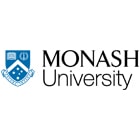- ข่าวและบทความ
- Find usIDP AustraliaIDP BahrainIDP BangladeshIDP CambodiaIDP CanadaIDP ChinaIDP EgyptIDP GhanaIDP Hong KongIDP IndiaIDP IndonesiaIDP IranIDP JordanIDP KenyaIDP KoreaIDP KuwaitIDP LebanonIDP MalaysiaIDP MauritiusIDP Middle EastIDP NepalIDP New ZealandIDP NigeriaIDP OmanIDP PakistanIDP PhilippinesIDP Saudi ArabiaIDP SingaporeIDP Sri LankaIDP Taiwan, ChinaIDP ThailandIDP TurkeyIDP UAEIDP VietnamIDP Corporate
- Social
- ไทย
- Where we operate
- Courses
- Scholarships
- IELTS
- About IDP
- บริการเสริมจาก IDP
- ข่าวและบทความ
- Find us
- Find us
- Find nearest IDP offices
- IDP Australia
- IDP Bahrain
- IDP Bangladesh
- IDP Cambodia
- IDP Canada
- IDP China
- IDP Egypt
- IDP Ghana
- IDP Hong Kong
- IDP India
- IDP Indonesia
- IDP Iran
- IDP Jordan
- IDP Kenya
- IDP Korea
- IDP Kuwait
- IDP Lebanon
- IDP Malaysia
- IDP Mauritius
- IDP Middle East
- IDP Nepal
- IDP New Zealand
- IDP Nigeria
- IDP Oman
- IDP Pakistan
- IDP Philippines
- IDP Saudi Arabia
- IDP Singapore
- IDP Sri Lanka
- IDP Taiwan, China
- IDP Thailand
- IDP Turkey
- IDP UAE
- IDP Vietnam
- IDP Corporate
- Social
- เปลี่ยนภาษา
- IDP Education /
- รูปภาพแบนเนอร์เนื้อหา /
- Australia /
- Monash University /
- Bachelor of Arts and Bachel...

Bachelor of Arts and Bachelor of Art History and Curating - International Relations
At MONASH UNIVERSITY

สถานที่
Australia
คุณสมบัติ
Dual Degree
ค่าธรรมเนียม
AUD39000
(2025)
ช่วงเวลา
4 Year(s)
ภาคการศึกษาใหม่
03 March 2025
คะแนนในการยื่นสมัคร
6.5
IELTSCOURSE_INFO
International relations as a discipline was founded after World War I and has evolved over the course of the 20th and 21st centuries. However, its core purposes remain the same: to explain seemingly intractable global problems and the political nature of responses to them, and to consider whether there are global responsibilities. The discipline advances critical knowledge about the causes, consequences and challenges of mitigating conflict and promoting cooperation within and across states and societies. It is concerned with the relationships between international structures, processes and political institutions including states, non-government organisations (NGOs), social movements, and international organisations such as the United Nations and its specialised agencies, the World Trade Organisation, NATO, and the European Union. Concepts of power, sovereignty, security and the state are central to the subject matter of international relations. You are encouraged to develop critical thinking, creativity, team work, research-based learning and analytical writing skills in order to understand contemporary changes and historical continuities in international relations.
- ทุนการศึกษา ดูทุนการศึกษาทั้งหมด
- ฝึกงาน
ค่าเล่าเรียนเป็นตัวชี้บอกและสามารถใช้เป็นแนวทาง รับข้อมูลค่าเล่าเรียน
Duration: 4 Year(s)
Fees: AUD39000
| ภาคการศึกษา | สถานที่ |
|---|---|
| Semester 1 (March), 2026 | Melbourne |
| Semester 1 (March), 2026 | Melbourne |
| Semester 2 (July), 2026 | Melbourne |
| Semester 2 (July), 2026 | Melbourne |
| Semester 2 (July), 2025 | Melbourne |
| Semester 1 (March), 2025 | Melbourne |
| Semester 2 (July), 2025 | Melbourne |
| Semester 1 (March), 2025 | Melbourne |
ข้อกำหนดในการสมัคร Monash University
All Monash undergraduate courses require you to have successfully completed a minimum of an Australian Year 12 qualification (or equivalent) and achieve the required academic entry score. Most Monash faculties generally use your most recent studies for admission however other guidelines may apply where your prior qualification may be considered.
GCE A Level 9
International Baccalaureate Diploma Programme 28
IELTS - 6.5 (Reading - 6.0, Listening - 6.0, Writing - 6.0, Speaking- 6.0)
Paper-based TOEFL – 550 (Test of written English - 4.5)
TOEFL iBT -79 (Reading- 13, Listening- 12, Writing: 21, Speaking- 18)
ปิดรับสมัคร
ยังไม่มีวันกำหนดส่งใบสมัคร พูดคุยกับที่ปรึกษา IDP เพื่อขอข้อมูลเพิ่มเติม
Further information
If you aren't eligible for the above entry requirements, you might ant to explore pathway options at Monash University. If you want to find out more, speak to our counsellors.
อันดับมหาวิทยาลัยชั้นนำของโลก
58th / 1250
อันดับมหาวิทยาลัยชั้นนำของโลกนักเรียนของเราคิดเห็นอย่างไร
ยังไม่มีความคิดเห็นเกี่ยวกับสถาบันนี้
แนะนำสำหรับคุณ
- ปริญญาตรี
- Australia
- DEADLINE: 07 Jan 2025
- ประเภททุนการศึกษา: Fee waiver/discount
- ปริญญาตรี
- Australia
- ประเภททุนการศึกษา: Fee waiver/discount
- ปริญญาตรี
- Australia
- ประเภททุนการศึกษา: Other Discount
- ปริญญาตรี
- Australia
- ประเภททุนการศึกษา: Fee waiver/discount
- ปริญญาตรี
- Australia
- ประเภททุนการศึกษา: Fee waiver/discount
- ปริญญาตรี
- Australia
- DEADLINE: 31 Oct 2025
- ประเภททุนการศึกษา: Fee waiver/discount
- ปริญญาตรี
- Australia
- ประเภททุนการศึกษา: Fee waiver/discount
- ปริญญาตรี
- Australia
- ประเภททุนการศึกษา: Free products/services
Your action plan
ขั้นตอน 1
Shortlist your courses
Choose the best three courses you’re most likely to pursue.
ขั้นตอน 2
Check your eligibility
Get an instant in-principle offer for courses with the IDP FastLane tag.
ขั้นตอน 3
Apply through IDP Live
Fill out the form once and use it to apply to multiple courses.
IDP FastLane ทำงานอย่างไร?
ด้วย 'ข้อเสนอตามหลักการ' ของ FastLane คุณจะรู้ได้ในไม่กี่นาทีว่าคุณจะได้รับการตอบรับหรือไม่!
เลือกสถาบันและหลักสูตร
สร้างประวัติการศึกษาของคุณ
ส่งใบสมัครของคุณเพื่อรับ 'ข้อเสนอในหลักการ'
สถาบันที่คุณเลือกจะส่งผลตอบรับถึงคุณภายในไม่กี่นาที!
เตรียมสมัครกับที่ปรึกษาผู้เชี่ยวชาญ




